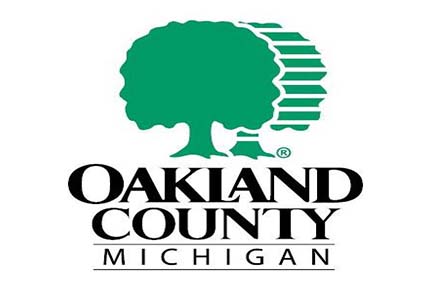
Gov. Gretchen Whitmer Announces Michigan projects receive $65,000 to document two significant Civil Rights sites in Detroit
- Michigan State Historic Preservation Office awarded $15,000 grant to document Civil Rights bookstore in Detroit
- City of Detroit awarded $50,000 to conduct historic study of Latinx communities in Detroit
LANSING, Mich. – Governor Gretchen Whitmer and the Michigan Economic Development Corporation today announced two projects in Michigan focused on Civil Rights history have been awarded $65,000 in federal Underrepresented Community Grant Program funding from the National Park Service. The Michigan State Historic Preservation Office (SHPO) of the Michigan Strategic Fund was awarded $15,000 to nominate Vaughn’s Bookstore in Detroit to the National Register of Historic Places, and the City of Detroit was awarded $50,000 to conduct a historic study of Latinx communities in Detroit.
“These grants will shine a light on places and experiences vital to the Civil Rights movement and help us further expand our understanding of the Civil Rights movement in Michigan,” said Gov. Whitmer. “The nomination of Vaughn’s Bookstore to the National Register will recognize a significant location that served as a center for Black culture and played a meaningful role in the Civil Rights movement in the city of Detroit.”
The SHPO grant was one of two projects in Michigan to receive funding from the National Park Service’s Underrepresented Community Grant Program. A separate $50,000 grant was also awarded to the city of Detroit to develop a historic context for the city’s Latinx community. This historic context document will provide a broad historical overview on the settlement and development patterns of Latinx communities in Detroit between 1880 and 1980.
The SHPO will utilize its grant to document and nominate Vaughn’s Bookstore in Detroit to the National Register of Historic Places. Established on Dexter Avenue in the early 1960s by Edward Vaughn, Vaughn’s Bookstore was Detroit’s first Black-owned bookstore. Born in Alabama in 1934, Edward Vaughn graduated from Fisk University in 1955 and served in the U.S. Army before settling in Detroit.
As a Black-owned enterprise, Vaughn’s Bookstore specialized in African American history, literature, and other materials, which were virtually impossible to find in traditional White bookstores. It became a center of black intellectual life in the city, not just for the content it offered for sale, but as a venue for people to gather and learn. During the 1960s, when the struggle for African Americans equality became more visible and mainstream, the bookstore became a nexus at the height of the black liberation and nationalism movement.
“As the first Black-owned bookstore in Detroit and a hub of African American journalism and conversation, Vaughn’s Bookstore played a key role in the tumultuous Civil Rights Movement of the 1960s,” said Michigan’s State Historic Preservation Officer Mark A. Rodman. “An important priority of the National Register program is to document those sites associated with significant events that have contributed to broad patterns of our history. We look forward to nominating the property to the National Register as the first step toward its reuse.”
The building was damaged after the Detroit Rebellion of 1967, and later saw other uses before it was abandoned. Vaughn remained active in the Civil Rights Movement, serving as chair of the Housing and Redevelopment Committee of the Citywide Citizens Action Committee and as the head of the Black Star Co-op. He later served several terms in the Michigan State House of Representatives.
The building’s known Civil Rights significance has already saved it from destruction. When the bookstore was identified several years ago for its cultural role in the neighborhood, representatives from the Detroit Land Bank Authority recognized it as a site on their list of properties to be demolished. They immediately removed it from the demolition list. Knowing its significance, the city of Detroit has been trying to save it and incorporate its reuse in its neighborhood planning efforts. National Register documentation will become the first step in that process.
The National Register is the official federal list of districts, sites, buildings, structures, and objects significant in American history, architecture, archaeology, engineering, and culture. National Register properties have significance in the history of their community, state, or the nation. Once listed, any federal project must take into account the potential for impacts on sites listed in the National Register, just as they must consider impacts to the natural environment.
The listing is honorary and is used to recognize and celebrate how the past plays a role in the future. Once listed, the bookstore will join nearly 2,000 other National Register-designated places in Michigan, including several other sites relating to Civil Rights history in Detroit.
“Through these grants to our state, Tribal, and certified local government partners, the National Register will continue to expand to help tell our nation’s diverse history,” said NPS Deputy Director Shawn Benge. The Underrepresented Community Grant Program of the National Park Service focuses specifically on work toward diversifying the nominations submitted to the National Register of Historic Places.
This funding is the latest in a series of competitive National Park Service grants awarded to the Michigan SHPO and partners to better document and tell Civil Rights stories across the state. The award directly builds on a 2016 grant which documented thirty 20th Century civil rights sites in Detroit, developed National Register of Historic Places nominations for five initial sites, and created a bike tour encompassing 15 of the sites, including the Vaughn’s Bookstore, which launched in late 2020 and can be found online at www.miplace.org/biketour. This 2021 award builds on these prior efforts and the momentum to properly document Michigan’s complete range of Civil Rights sites and consider their significance.
Focused on the historic preservation of culturally or archaeologically significant sites throughout the state, Michigan’s State Historic Preservation Office’s main function is to provide technical assistance to local communities and property owners in their efforts to identify, evaluate, designate, interpret and protect Michigan’s historic above- and below-ground resources. SHPO also administers an incentives program that includes federal tax credits and pass-through grants available to certified local governments.
About Michigan Economic Development Corporation (MEDC)
The Michigan Economic Development Corporation is the state’s marketing arm and lead advocate for business development, job awareness and community development with the focus on growing Michigan’s economy. For more information on the MEDC and our initiatives, visit www.MichiganBusiness.org. For Pure Michigan® tourism information, your trip begins at www.michigan.org. Join the conversation on: Facebook, Instagram, LinkedIn, and Twitter.
The National Register Nomination for Vaughn’s Bookstore is supported through the Underrepresented Communities grant program as administered by the National Park Service, Department of Interior.
This material was produced with assistance from the Underrepresented Communities, administered by the National Park Service, Department of the Interior. Any opinions, findings, and conclusions or recommendations expressed in this material are those of the author(s) and do not necessarily reflect the views of the Department of the Interior.
The views and conclusions contained in this document are those of the authors and should not be interpreted as representing the opinions or policies of the U.S. Government. Mention of trade names or commercial products does not constitute their endorsement by the U.S. Government.
This program receives Federal financial assistance for identification and protection of historic properties. Under Title VI of the Civil Rights Acts of 1964, Section 504 of the Rehabilitation Act of 1973, and the Age Discrimination Act of 1975, as amended, the U.S. Department of the Interior prohibits discrimination on the basis of race, color, national origin, disability, or age in its federally assisted programs. Michigan law prohibits discrimination on the basis of religion, race, color, national origin, age, sex, marital status, or disability. If you believe you have been discriminated against in any program, activity, or facility as described above, or if you desire further information, please write to:
Chief, Office of Equal Opportunity Programs
United States Department of the Interior
1849 C Street, NW, MS-2740
|











